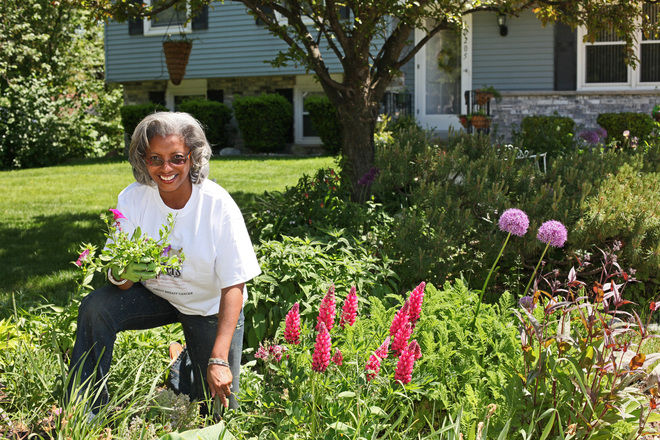You Are A Caregiver…Too
- LaShawn Splane-Wilburn
- May 27, 2016
- 5 min read

The value of identity of course is that so often with it comes purpose. - Richard Grant
In addition to being a husband, wife, mother, father, sister, brother, cousin, aunt, uncle, or friend we are caregivers. Caregiver is not our only identity. We are a caregiver "too". If we are not careful we may find ourselves becoming an extension of our loved ones, our every focus on keeping the environment in ourselves in perfect synchronicity in an effort to reduce the amount of stress or discomfort they experience. What happens when we do that is we create for ourselves an insurmountable level of stress and anxiety.
Many Mental Health Family Caregivers are not aware they are on the way to becoming or have already become secondary patients to their loved ones illness or disorder. Many of us find ourselves shut off from the real world and existing only in the world we have created for our loved one. Our outside world must maintain a level of perfection so that no one knows the amount of true suffering that is going on behind closed doors.
A caregiver can began to mirror some of the symptoms of their loved one who’s suffering negative symptoms of their disorder. Caregivers find themselves acting as their loved ones own personal body guard when going out, looking out for things or people that may trigger their loved ones negative symptom. The caregiver may notice themselves looking for these “situations” even when going out without their loved one.
A caregiver can find themselves receiving very little emotional support from their loved one who may be incapable of giving it, or worst yet be verbally abusive to the caregiver. The caregiver needing to express joy at an accomplishment or anger, and fear may not find very much support from their loved one. Because the caregiver is in such an emotionally sterile environment they may find themselves dealing with others outside of their home, and also with their loved one in the same manor.
Handling all of the household chores, caring for other family members or children, being the counselor, nurse, maid, laundry service, yard service, home repair person, car service person and any other roles you may have to fill in can be overwhelming and you may not realize how much of your loved ones symptoms you have taken on.
Why It’s Important to Remember Who You Are
Being that we caregivers spend so much time in the role of caring for someone else it’s easy to neglect our own self care but most importantly to lose our own identity. We start by canceling lunch appointments with friends, opting out of going for our workout, missing a hair appointment, and it spirals out of control from there. Before we know it our only life outside of the house is when we are taking a loved one to a doctors appointment, a trip to the grocery store, or to get the kids from school. We no longer desire to do anything outside of our commitments to our loved one and chores to keep the “ship from sinking”.
A quick way to figure out if you have merged into the identity of caregiver is when someone asks about your loved one you answer with “we”. An example would be someone asks you how are you doing today and your immediate response is, “we are good, she took her medicine this morning without incident and she’s been sleeping through the night so can’t complain…”

If you notice the caregiver didn’t answer the question, “how are you doing?” they answered for them and their loved one. Caregivers have difficulty expressing their fears, or any emotions because for so long they have had to suppress them or to not give any level of importance to them out of fear of breaking down, or casting light on themselves when their loved ones are so ill. That scenario is a quick indicator that you have lost your identity or are on your way to losing your identity.
It’s important that you don’t become the shadow in the room, the one in the kitchen cooking or doing laundry.
How To Reclaim Your Identity
Knowing who you are is the key to maintaining your identity. Sometimes it takes a reminder from family members or close friends helps us, and sometimes looking back at pictures or recalling our life before caregiving can help us to jumble our memory of our identity. Some other great ways to get started on the road back to reclaiming a life outside of caregiving is:
First admit that you need help. Many times guilt or pride prevents us from asking for help from family or friends. Sometimes we are afraid of our loved ones response to being left with a 'stranger". Consider what happens if you suffer burnout and wind up in the hospital yourself and your loved one has to spend time with a professional caregiver or be sent to state facility by a social worker. It's better to plan for a break before you need one.
Second be honest about your feelings, don’t push them down in hopes of them not resurfacing. Negative feelings only serve to make you feel worse the longer you try to pretend they are not there. Seek our a trustworthy source or a counselor to discuss openly and honestly your feelings.
Third get the help you need before you need it. Don’t wait until you are overwhelmed and overworked to ask for help because you may not be in the correct mindset, and could make decisions not in the best interest of yourself and your loved one. Hiring a professional caregiver from a professional organization can provide quality care for your loved one and a well needed break for yourself. Enlisting the help of other family members is a good resource as well but not everyone has that luxury.
Fourth join a support group with other caregivers who care for loved ones with similar diagnosis as your loved one because they would better understand the unique circumstances you face on a daily basis. You are able to share from your own experience without the guilt of venting about your emotions and feelings about caregiving.
Fifth a professional counselor is also a good investment for a caregiver to have because they are well versed in the emotions and challenges that come with caring for someone with a mental health disorder.
Sixth reunite with the things you once loved. What are your hobbies? What do you like to do that makes you happy? Do that and make time for it often. You arrange your schedule to fit your loved one, you can arrange your schedule to include some time for yourself.
Seventh exercise. It’s important to get moving and stay healthy. You can use YouTube to do a cardio workout in your living room or you can go for a walk every day for 30 minutes. You can join a water aerobics class, or go bike riding. Getting active is good for both your mental and physical health.
Eighth keep your spiritual life healthy with prayer and surrounding yourself with others who have a strong faith and can encourage you. Many times we may encounter those who are of the belief that mental illness is a matter of faith, rest assure like any other disorder or illness mental illness deserves the same level of importance. Do not surround yourself with people who cannot encourage you and help to build or rebuild your faith during times when you may find it challenging. Stay prayerful and fill your environment with gospel or podcasts of spiritual inspirational speakers when possible.




Comments